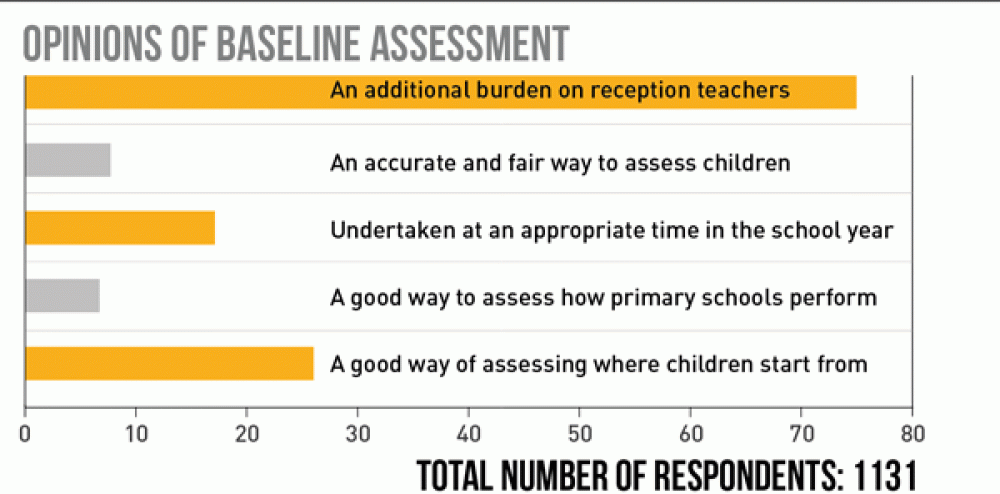New baseline assessment tests for reception pupils have been labelled “inaccurate, invalid and unreliable” – with teachers claiming they are disadvantaging their most vulnerable pupils.
A survey of more than 1,000 teachers and school leaders by the UCL Institute of Education found 60 per cent do not think baseline assessments accurately reflect child attainment.
The government introduced the tests in September to improve how it measures primary schools’ progress to the end of key stage 2 (KS2).
The assessments are carried out during the first half term of the reception year
But teachers say, in practice, these tests are putting English as an Additional Language (EAL) pupils and those with special education needs (SEN) or disabilities at a disadvantage.
Dr Guy Roberts-Holmes, one of the researchers involved in the project, said: “The assessments are problematic at best, potentially damaging at worst.”
A total of 60 per cent of teachers said the tests did not provide an accurate reflection of their pupils’ attainment.
The survey, organised by the Association of Teachers and Lecturers (ATL) and the National Union of Teachers (NUT), also found the tests were disrupting children beginning school.
In some cases, supply teachers were brought in to teach pupils in their first few weeks at schools while classroom teachers carried out the tests.
The report also found almost 50 per cent of children had been graded as “below typical” or “well below typical” in schools it visited after results had been sent out from one of the test providers, Early Excellence.
ATL general secretary Mary Bousted said: “It’s inaccurate, invalid and unreliable, it takes teachers away from learning and puts stress on kids at an essential time when they should be settling into school.”
The report found the assessments did not help identify the needs of vulnerable pupils. Concerns were also raised about the tests only being conducted in English – hindering EAL pupils – with SEN pupils also being “inaccurately assessed”.
Dr Bousted added: “For a government that has committed to closing the gap between affluent and less affluent children, what they are now doing is siloing inaccurate data that doesn’t show whether pupils can do the tests, but whether they are socially confident enough to.”
She said schools were streaming children on the basis of the tests, adding: “There is a danger that the future trajectory of four-year-old children can be determined on a test that is so unreliable.”
Christine Blower, NUT general secretary, said around 2,000 schools choose to not use baseline tests last year. She has called on others to follow suit and revert back to using the Early Years Foundation Stage Profile.
Ms Blower added: “We want schools to have a discussion about this – it adds nothing to your knowledge of the child and it adds to teacher workload. It’s a completely redundant and useless measure.”
The assessments are not mandatory, but schools have a strong incentive to do so. Those that do not use it will be made accountable solely on the attainment of pupils at the end of KS2, as opposed to having to meet the floor target in either attainment or progress.
Dr Bousted added: “All we can do is present the government with some uncomfortable truths. The most uncomfortable truth is that it’s not accurate.”
Click here to read the three baseline providers response to the survey







Your thoughts